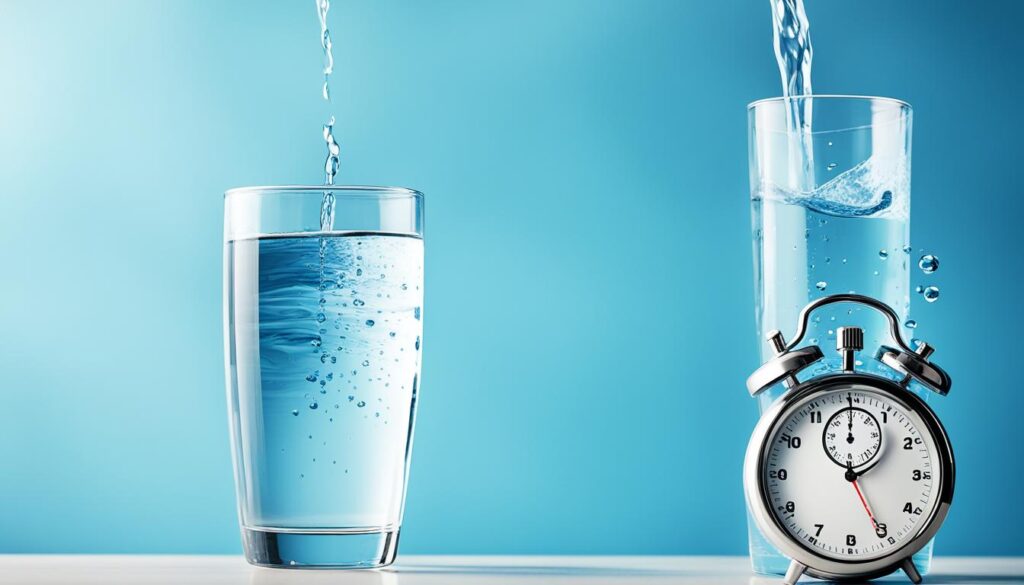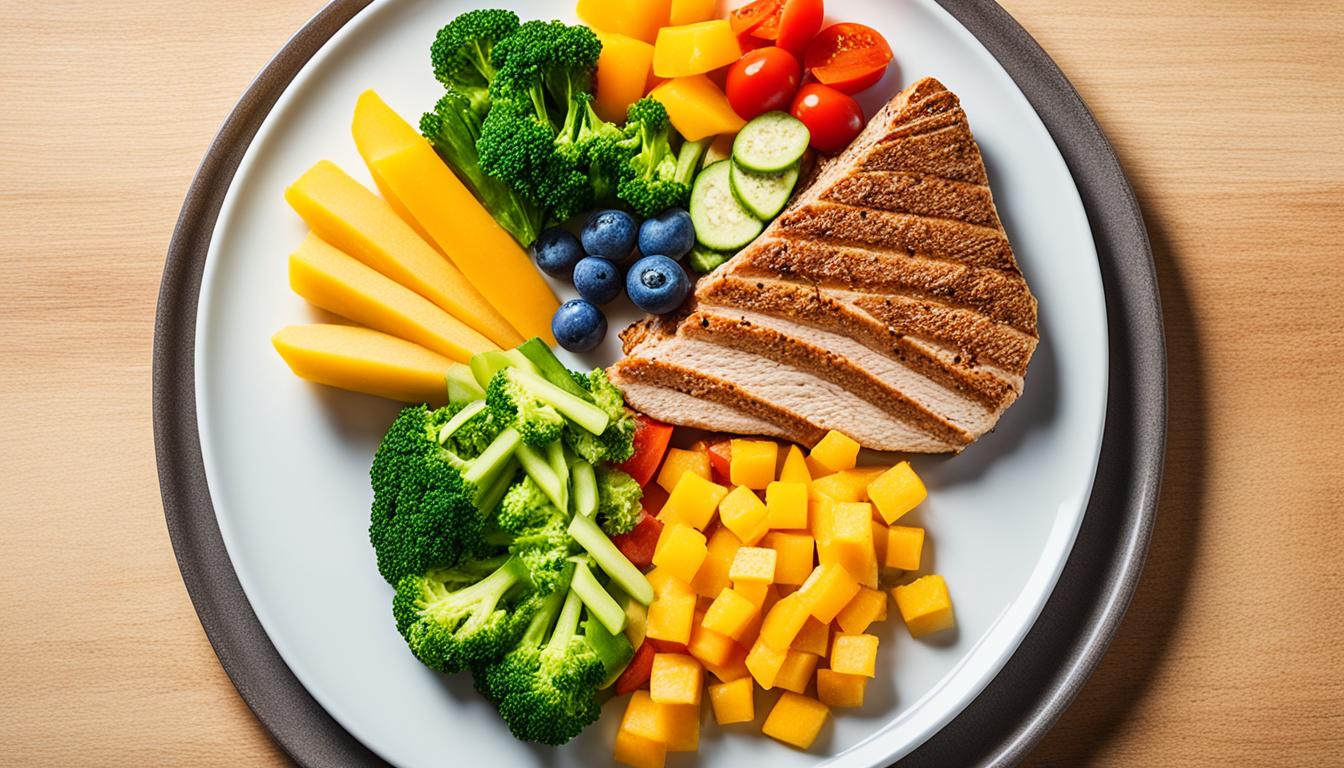Many people look at diets like the water diet or OMAD (one meal a day) to lose weight and be healthy. These diets focus on eating less but raise questions about their health effects. The water diet focuses on drinks to help with detox and losing weight. At the same time, OMAD fits all your daily food into just one meal. This aligns with fasting principles.
Starting OMAD can be tempting because of its simplicity and possible benefits for your metabolism, like better blood sugar control. But, dietitian L.J. Amaral from Cedars-Sinai in Los Angeles warns to be careful. It’s crucial to get all the nutrients you need in that one meal. This challenge highlights how essential proper guidance is with these diets.
Understanding Water Diet and One Meal a Day Principles
Intermittent fasting includes many methods to boost health. It uses the body’s fasting responses to improve wellness. The focus is on overall health, combining healthy eating with smart meal planning.
Definition and Types of Intermittent Fasting
Intermittent fasting has eating plans like Time-Restricted Feeding (TRF) and Alternate Day Fasting (ADF). These methods fit different lifestyles, making meal planning flexible. In particular, One Meal a Day (OMAD) emphasizes the importance of hydration, setting rules for when and how much to eat.
The Role of Hydration in One Meal a Day Regimen
Hydration is key in OMAD. Drinking plenty of water and zero-calorie drinks helps maintain fasting. It goes beyond not eating, focusing on hydration to support detox and metabolism.

Nutritional Considerations for Adequate Intake
In OMAD, nutrition is crucial during the limited eating time. The meal should have various nutrients to make up for fasting time. It ensures a good balance of all essential nutrients, including enough water.
| Nutrient | Sources | Benefits in OMAD Diet |
|---|---|---|
| Proteins | Lean meats, legumes, dairy | Muscle maintenance and satiety |
| Carbohydrates | Whole grains, vegetables | Sustained energy and fiber intake |
| Fats | Avocados, nuts, olive oil | Essential fatty acids and nutrient absorption |
| Vitamins & Minerals | Fruits, leafy greens | Immune support and metabolic function |
| Water & Electrolytes | Water, electrolyte-infused drinks | Hydration and bodily functions |
The core of intermittent fasting is not just when you eat. It’s also about what you eat. By focusing on hydration and healthy eating, the OMAD diet can be truly beneficial. It takes care of all nutritional needs.
The Science Behind Weight Loss with One Meal a Day
Eating only one meal a day has interesting science behind it, suggesting benefits for weight loss and health. It’s a form of intermittent fasting that triggers the body’s autophagy. This means cells clean themselves and remove waste. This process helps reduce fat and boosts defense against some diseases. Eating once a day can also lower blood pressure and bad cholesterol, helping the heart stay healthy.
Yet, most evidence for one-meal-a-day benefits comes from short-term or animal studies. We need more long-term studies on humans to be sure. When eating just one meal, it’s critical to make it full of nutrients. Not doing so can lead to not getting enough nutrition, harming your health goals.
The Centers for Disease Control and Prevention (CDC) say slow weight loss is better for long-term health than quick changes. When eating just one meal a day, eating mindfully afterwards is key. Without guidance from experts, such strict diets can be risky. So, while eating one meal a day might help with weight loss, do it wisely. Always consider getting advice from a healthcare professional.




